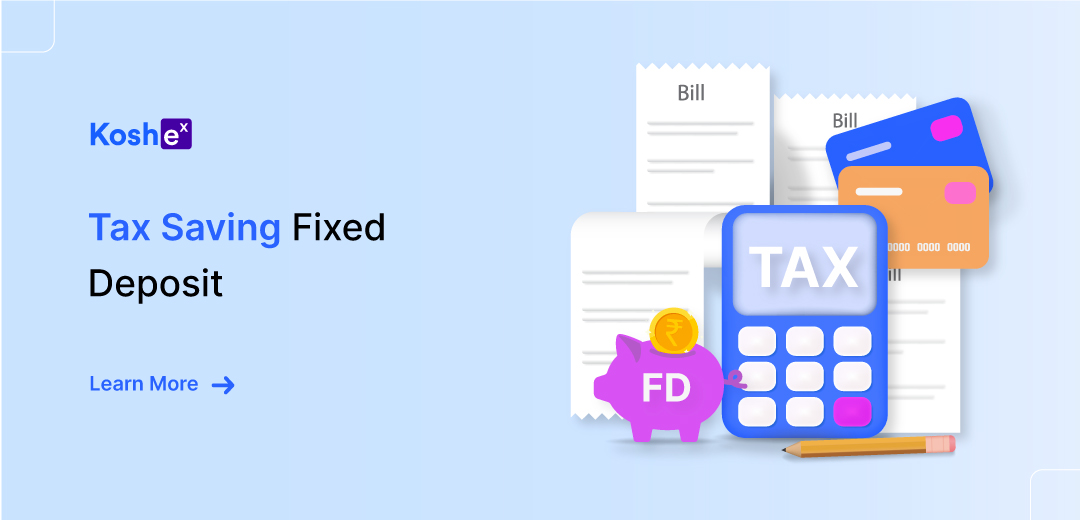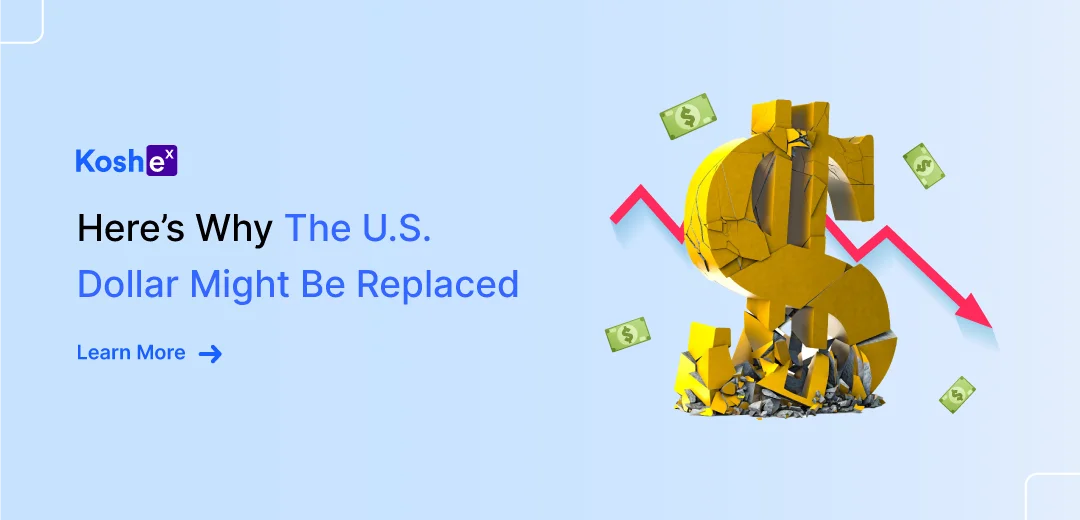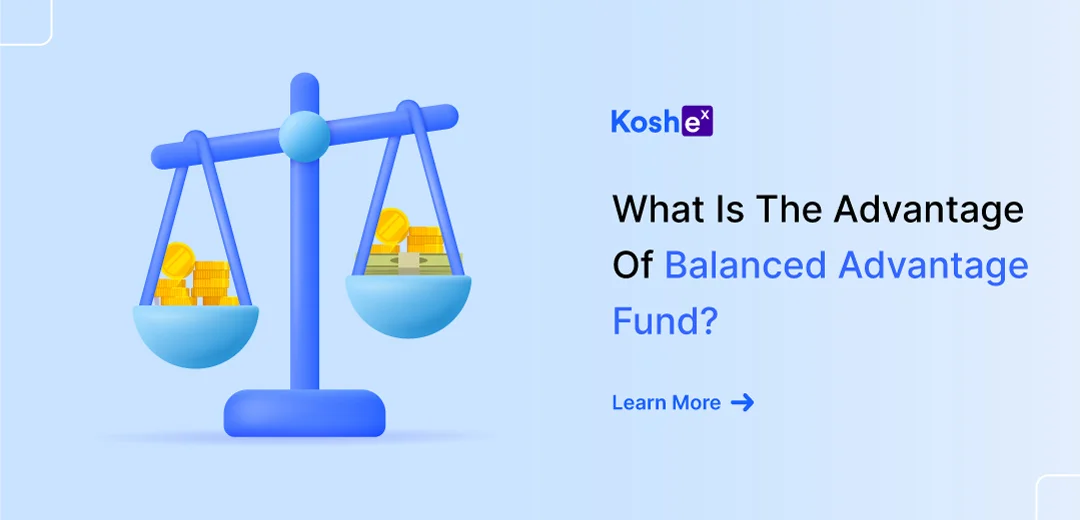Tax Saving Fixed Deposits
So many tax-saving options are available for investors these days – ELSS, PPF, NPS, and so on. Today, we are learning about this Fixed Deposit, which will help grow your wealth and save your taxes.
Let’s look at this instrument and see whether this will be a good fit for your investment portfolio.
What Are Tax Saving Fixed Deposits?
A tax-saving Fixed Deposit is a scheme through which you can get tax deductions under Section 80C of the Income Tax Act, 1961.
You can open a tax-saving FD of a minimum amount of ₹100 and a maximum of ₹1.5 lakh. If the deposit is opened jointly by you and your spouse, the tax benefit is given to the primary holder. The deposit comes with a lock-in period of five years.
The rate of interest on a tax-saving Fixed Deposit will range from 5.5% – 7.75%. The interest that you earn on your FD is taxable.
The tax-saving FD offers either monthly or quarterly interest payout. One of the best features of a tax-saving Fixed Deposit is that it has the guarantee of assured returns.
Comparing Tax-Saving Fixed Deposits With Other Tax-Saving Instruments
As mentioned above, there are several tax-saving investment options available for investors. In the below table, we are going to compare all of them with tax-saving FDs.
| Name Of The Instrument | Lock-In Period | Returns |
| Equity Linked Savings Scheme (ELSS) | 3 years | Returns are not guaranteed. Meanwhile, the 5-year returns of the instrument have been in the average of 11-14% |
| Tax-Saving Fixed Deposit | 5 years | 5% to over 6% |
| National Savings Certificate (NSC) | 5 years | 6.8% |
| Public Provident Fund (PPF) | 15 years | 7.1% |
| Sukanya Samriddhi Yojana (SSY) | 21 years | 7.6% |
| National Pension Scheme (NPS) | Until retirement | Market-linked |
Eligibility To Open A Tax-Saving Fixed Deposit
A tax-saving FD is easy to open if you meet the required eligibility criteria. You can contact your bank directly to see if you meet the right qualifications.
Resident Indians, individuals, and Hindu Undivided Families (HUF) can open a tax-saving FD. You can also open a tax-saving FD in a single and joint account.
Below are the documents you will require to apply for a tax-saver FD:
Permanent Account Number (PAN)
Aadhaar Card
Driving License
Passport
Passport-size photographs
Benefits Of Tax-Saving Fixed Deposits
Easily Available
The FD scheme is available in all the public and private sector banks in India. You can start investing in an FD via internet banking as well. If you have already done the “Know Your Customer” formalities at the bank, you don’t have to go to the bank for opening an FD.
Tax Exemption
The original amount that you deposit in the FD is exempted from taxation under Section 80C of the Income Tax Act. The section provides an exemption of up to ₹1.5 lakhs toward an FD deposit.
High Returns
A tax-saving FD offers a higher interest rate than savings accounts. The interest rate can vary between 7% to 8%. The best thing about FDs is that the returns are guaranteed.
Senior Citizen Benefits
Fixed deposit interest rates are even better for senior citizens than for others. The interest rates may differ depending on the bank chosen and the tenure of the FD. With some banks, it could be as high as 10%. This way, senior citizens can save on taxes and earn more income via fixed deposits.
Offers Partial Withdrawals
Some banks offer the option of doing partial withdrawals from your FD account. The balance that will remain in your FD account after withdrawal will get the same interest. Hence, these FDs are more lucrative and can be used to withdraw money during emergencies.
Automatic Renewal
FDs can be renewed automatically. You are not required to go to the bank to renew your FD, as it can be managed via internet banking.
No Fluctuations
FDs are completely secure, as the interest rates are not affected by market fluctuation, which is the case with mutual funds, and other market-related financial schemes. The interest rate for an FD scheme will remain fixed during a given time period until it reaches its maturity.
No TDS
You can receive the interest, without the TDS (Tax Deducted At Source) reduced from it. You will have to fill out the 15-H form and submit it to the concerned branch of the bank.
What To Consider Before Investing In Tax-Saving Fixed Deposits
Only individuals and HUFs can invest in tax-saver FD schemes. A minor can invest jointly with an adult.
The minimum amount of investment in a tax-saver FD differs from one bank to another. Also, there is no maximum limit when it comes to investing in tax-saving FDs.
However, the amount that can be claimed as a deduction under Section C is ₹1.5 lakh.
All interest that you gain on the fixed deposits is fully taxed. The income is denoted under the head “Income From The Other Sources” when you filed your ITR to Income Tax Returns.
Interests gained from an FD are charged with TDS. Banks reduce it from the interest accrued at the end of each year. However, you have the option to opt-out of TDS and pay the entire interest at maturity.
While the FD can offer you a higher interest rate of 10%, other investment avenues such as mutual funds can offer over 15% to 20% returns.
But the thing is mutual funds carry more risk than tax-saver FDs. So, if you are looking to choose an investment instrument that offers higher returns and comes with a little bit of risk, you can consider investing in ELSS.
The interest rate of FDs will remain the same throughout the tenure and it will not increase. Meanwhile, the returns are guaranteed.
In The End…
Tax-saving fixed deposits are a good investment option to save taxes and also, grow wealth. It is suitable for those who are looking to earn guaranteed returns without wanting to take many risks.
When compared to other safe tax-saving investments, like PPF and NPS, which come with long lock-in periods, tax-saver FDs have a lock-in period of only 5 years.
If you are someone who is willing to take risks, you can invest your money in both ELSS and tax-saving FDs to save taxes and earn higher returns.
In case you are looking for a platform to start your tax-saving journey, head over to Koshex and create a free account without doing any paperwork.
You can choose any ELSS fund and start investing right away. Sign up with us today.









Leave a Comment